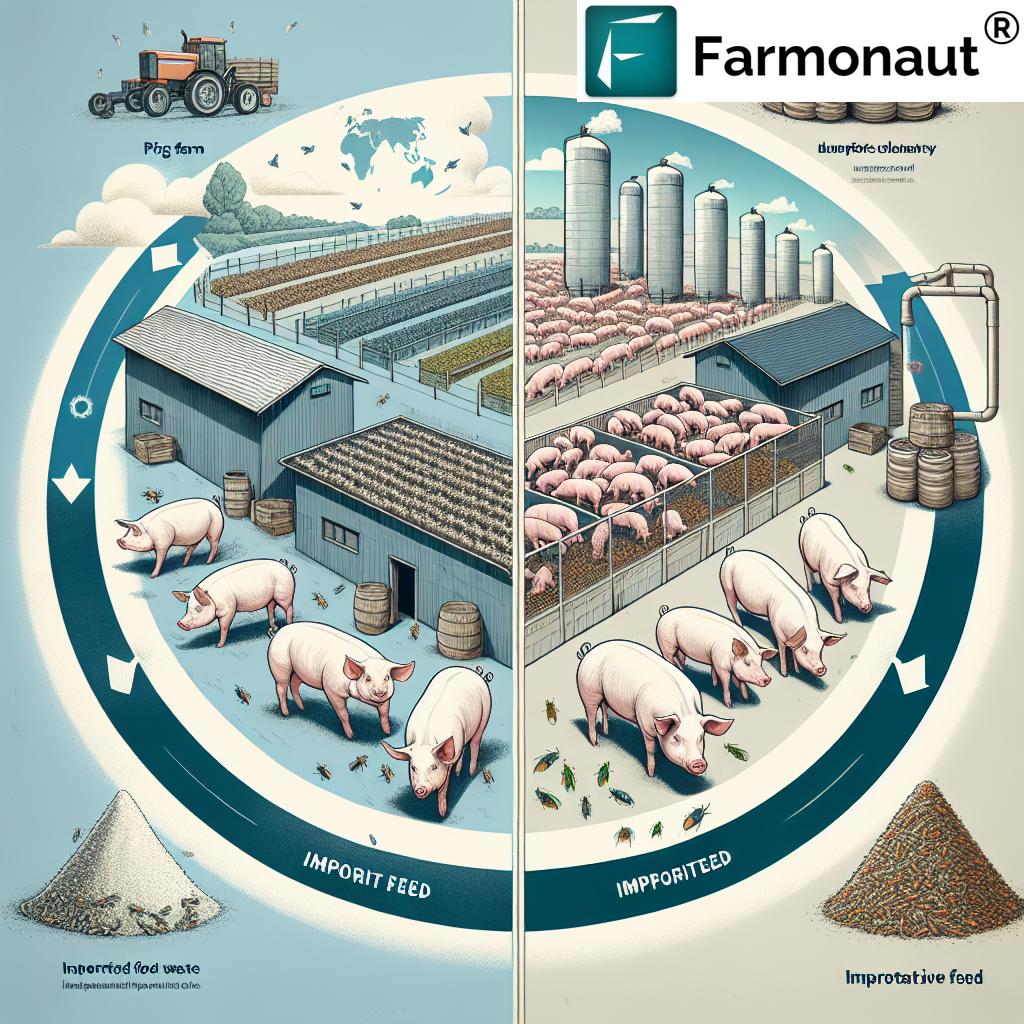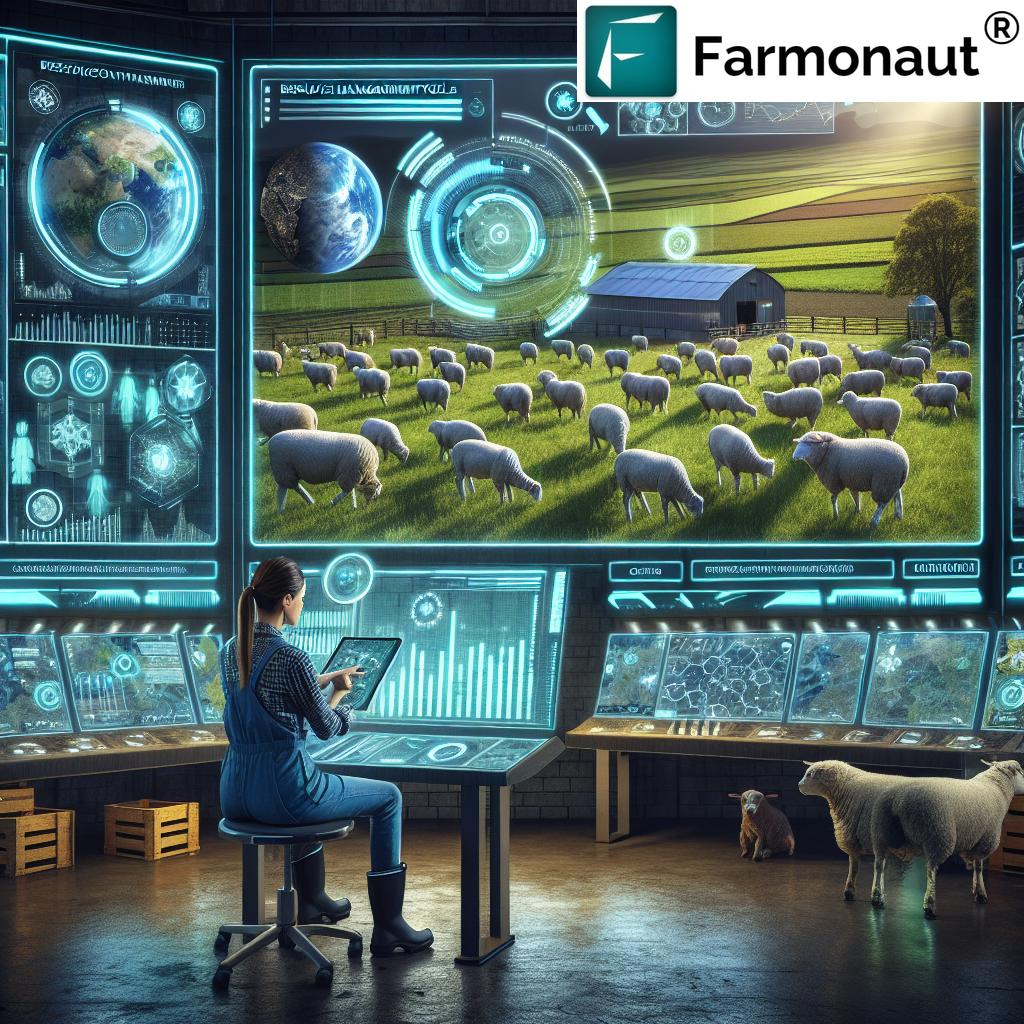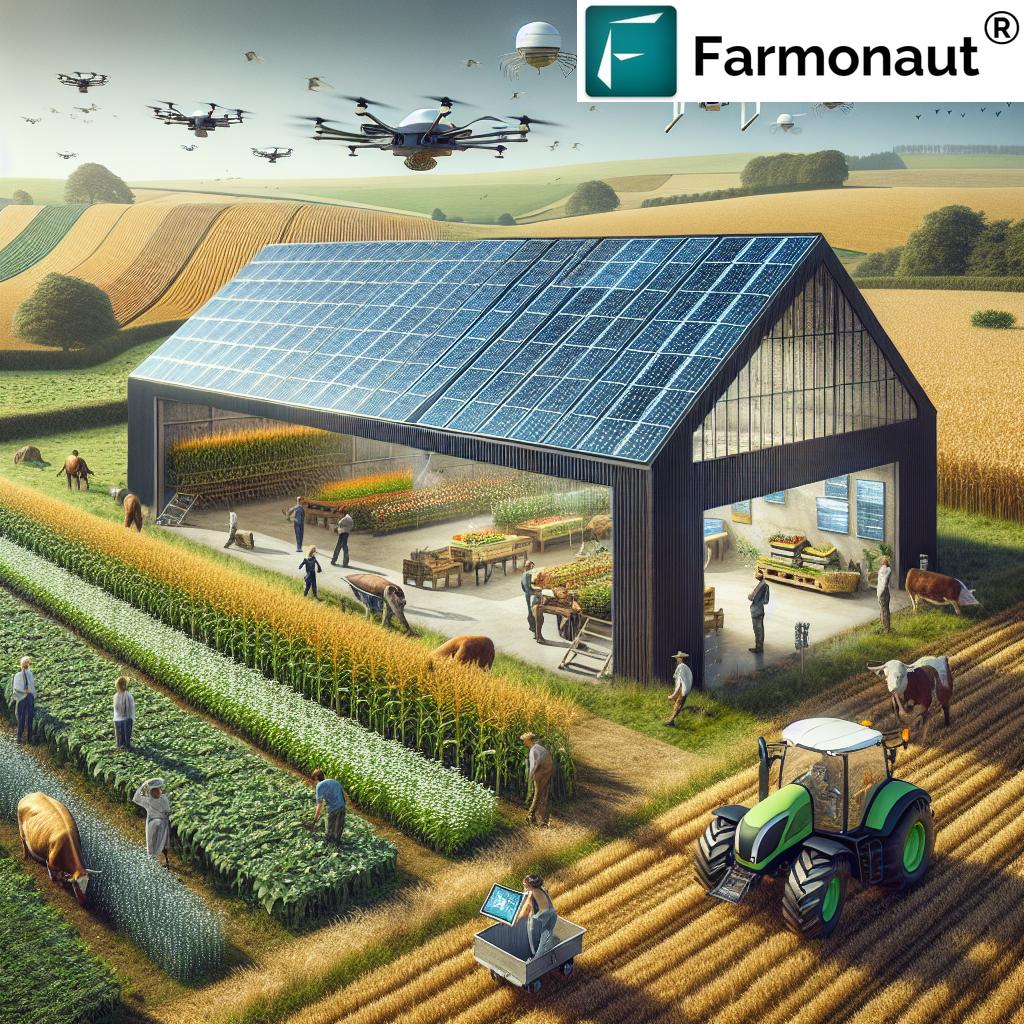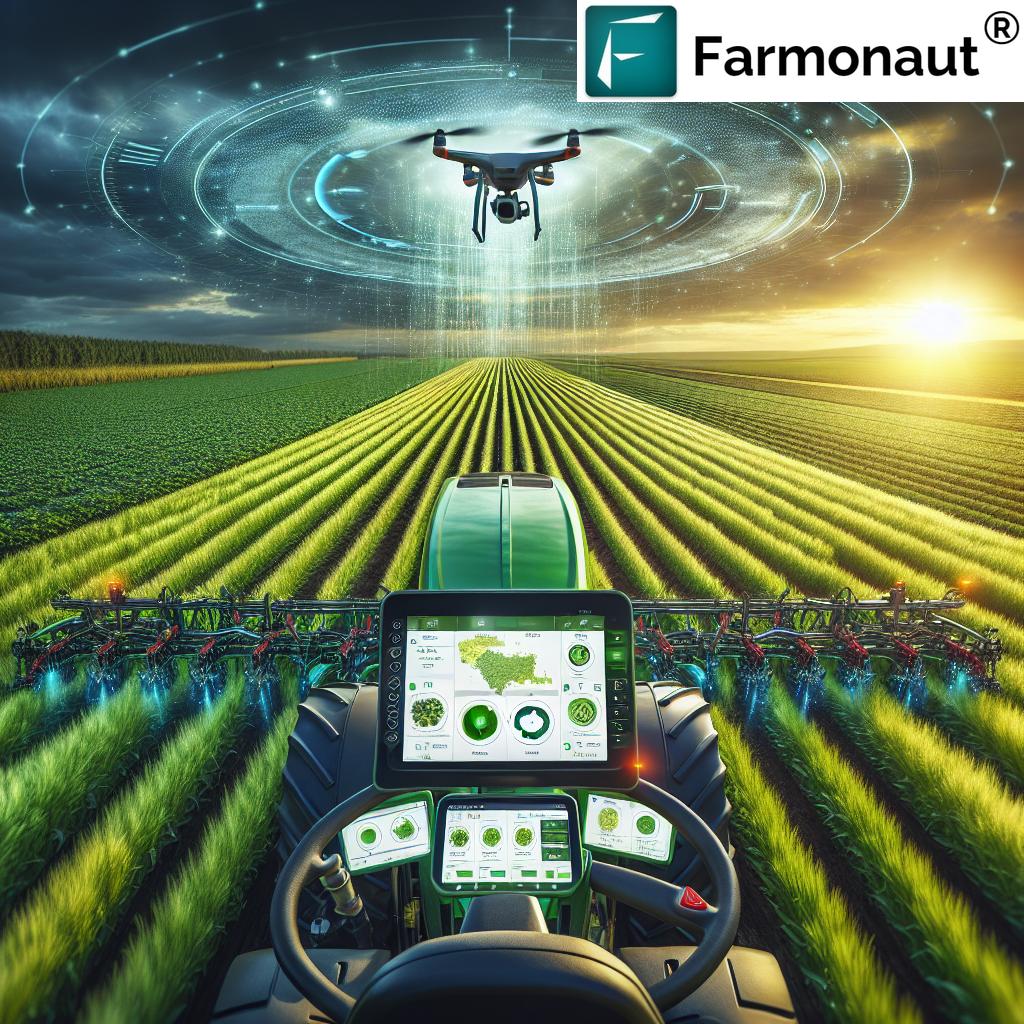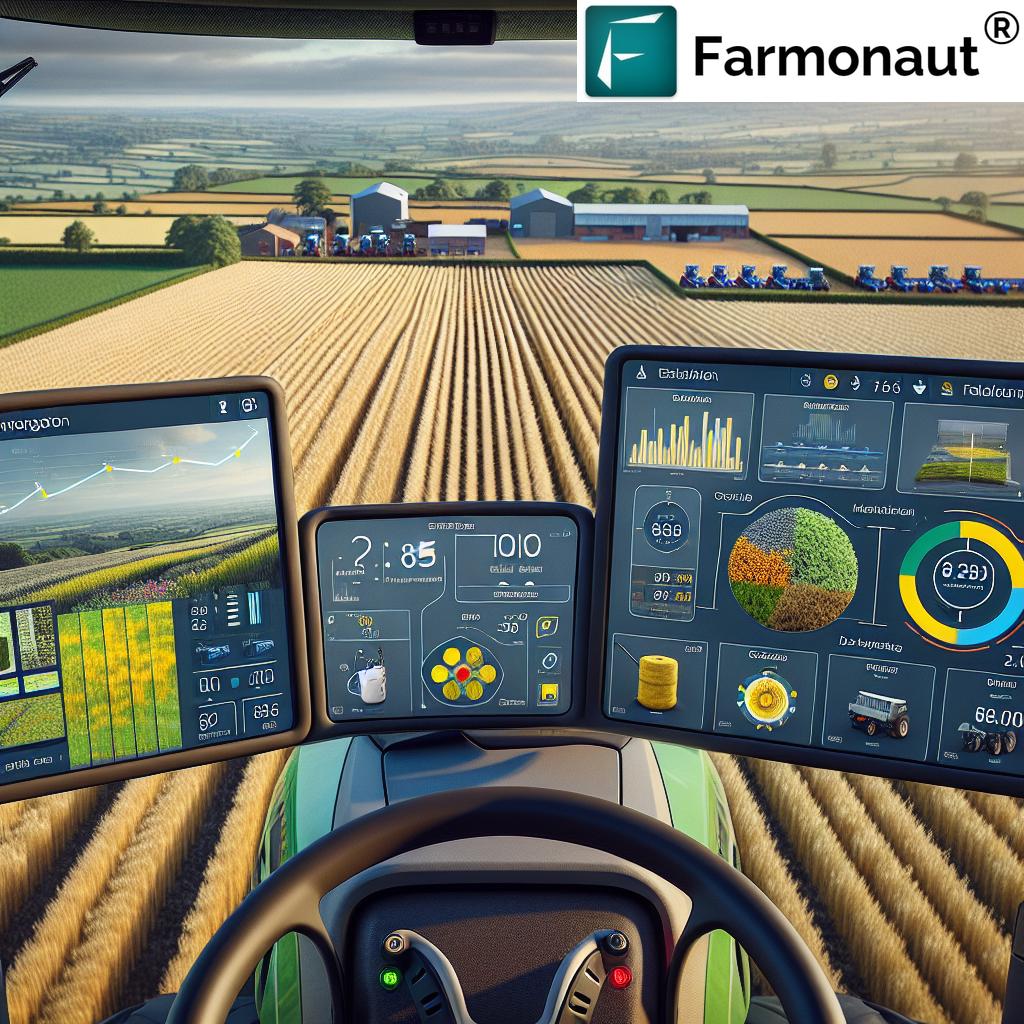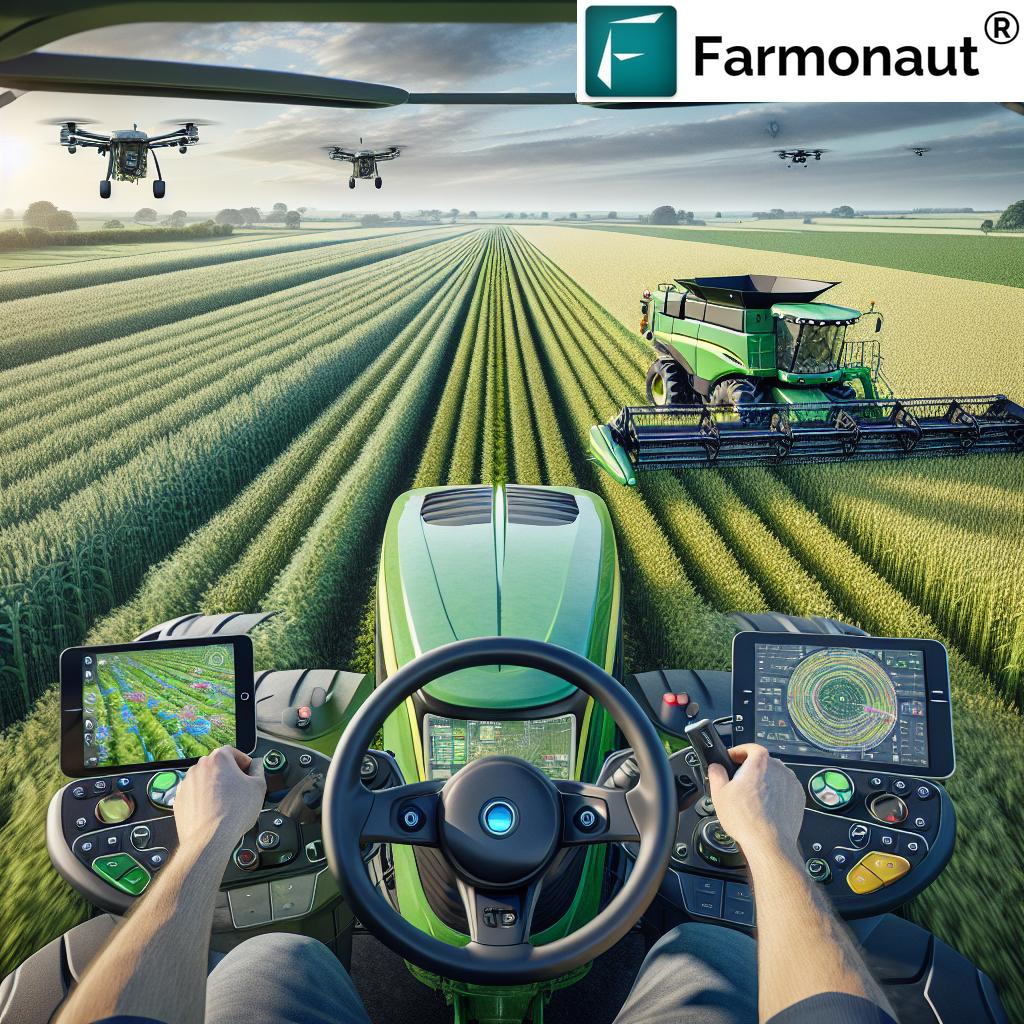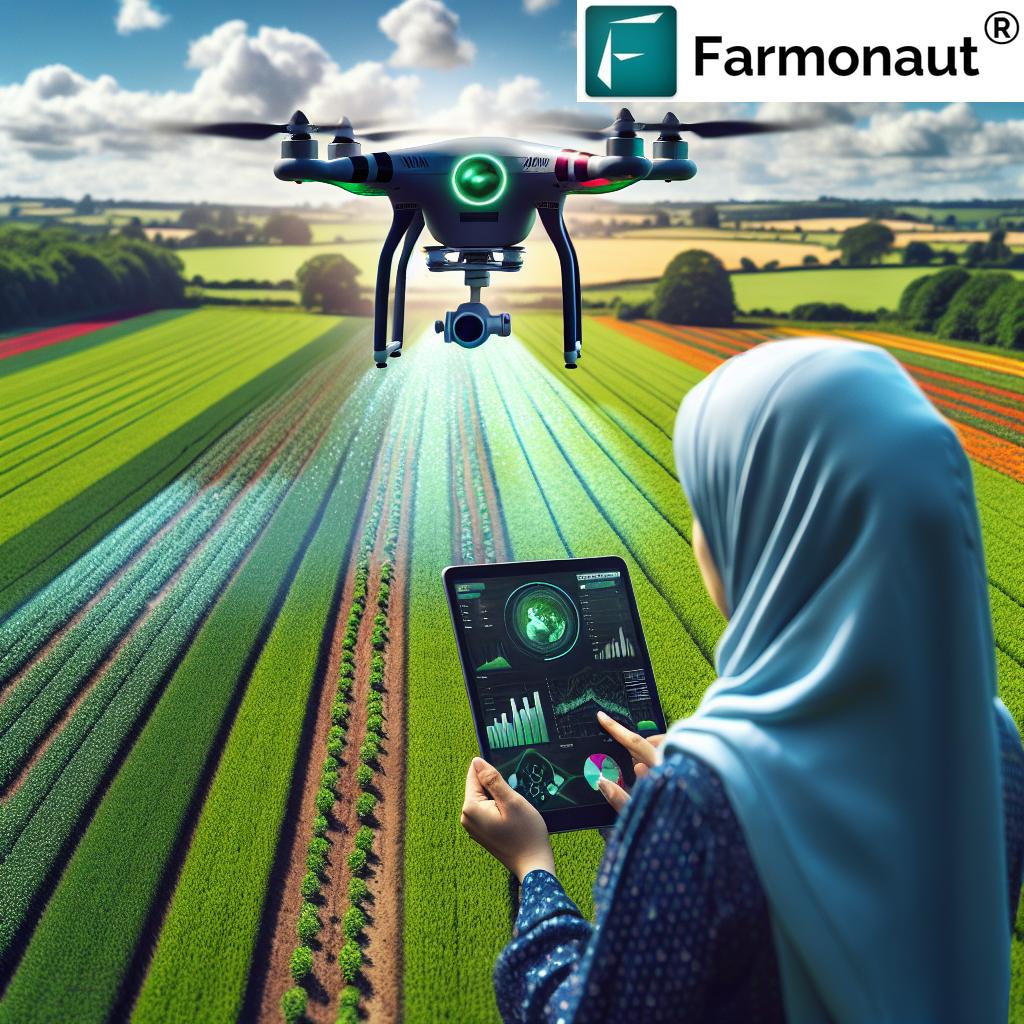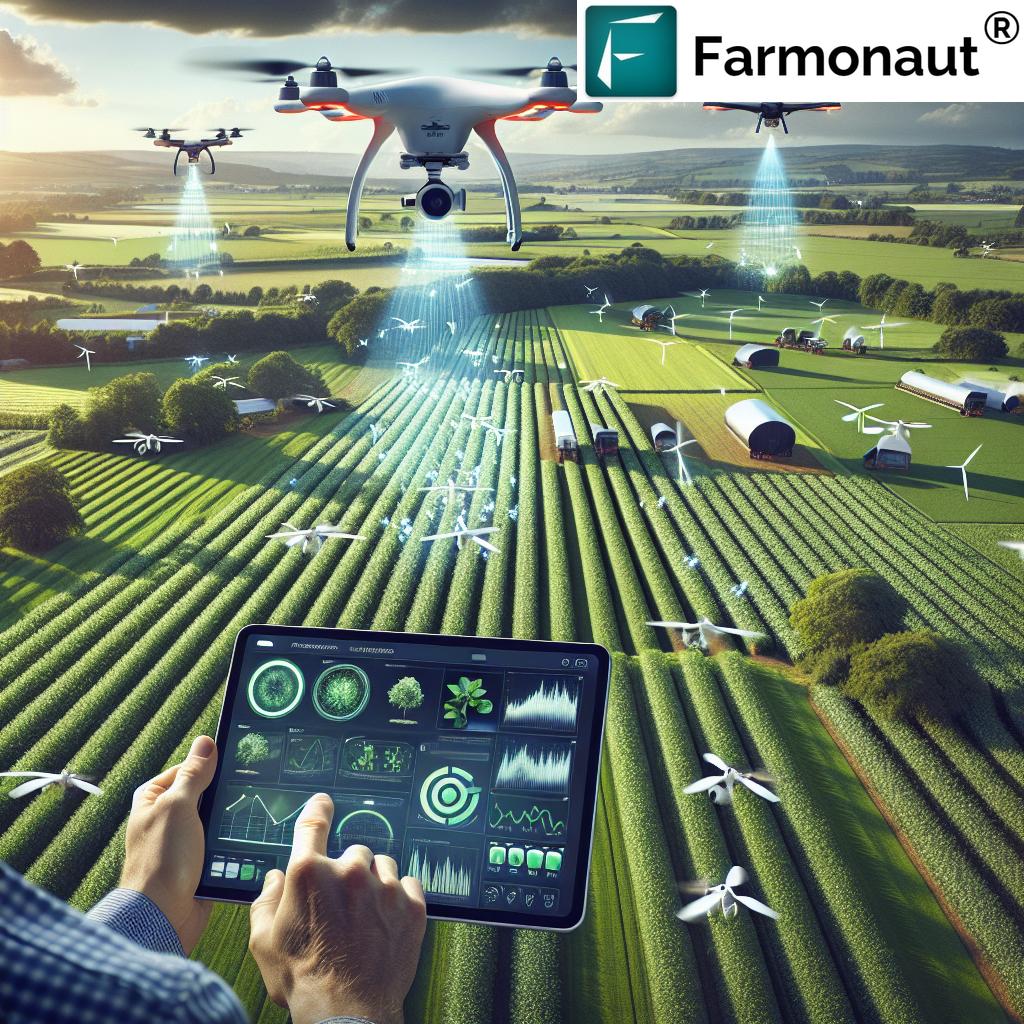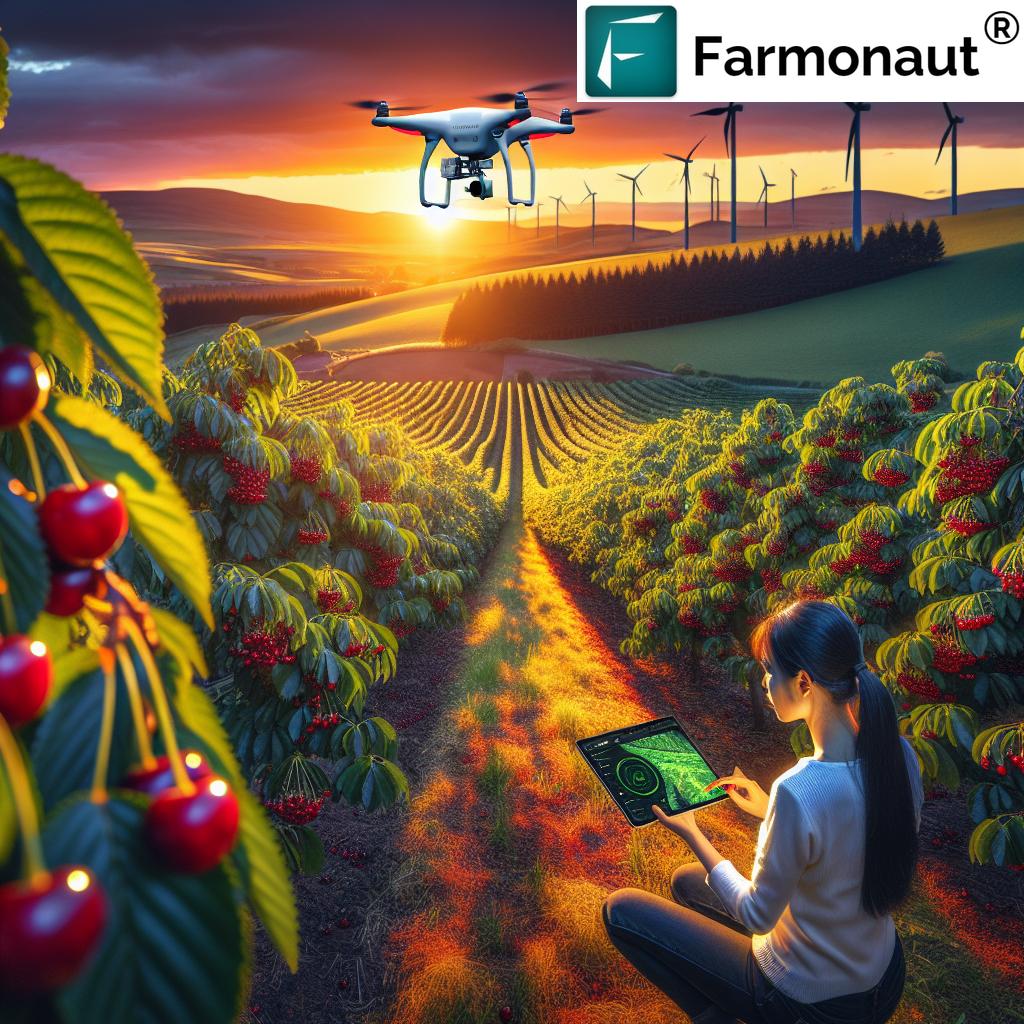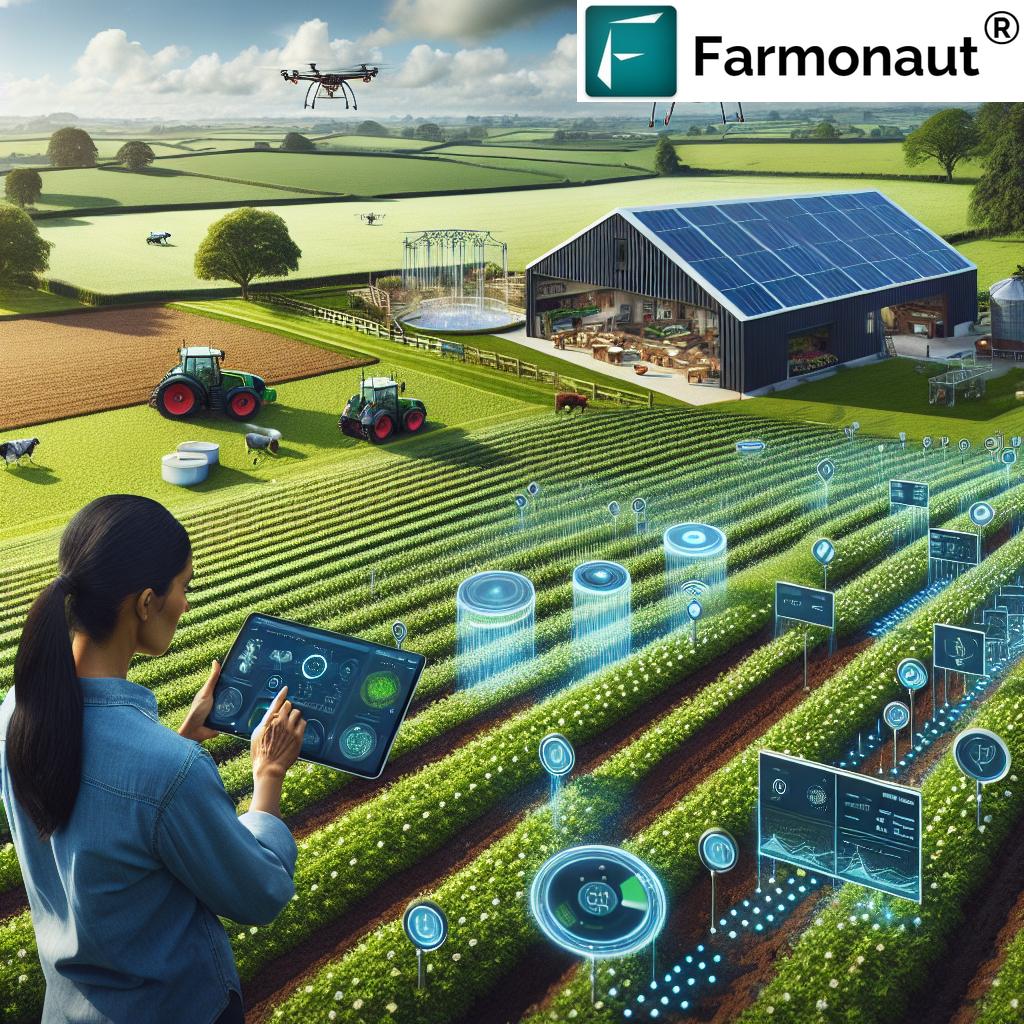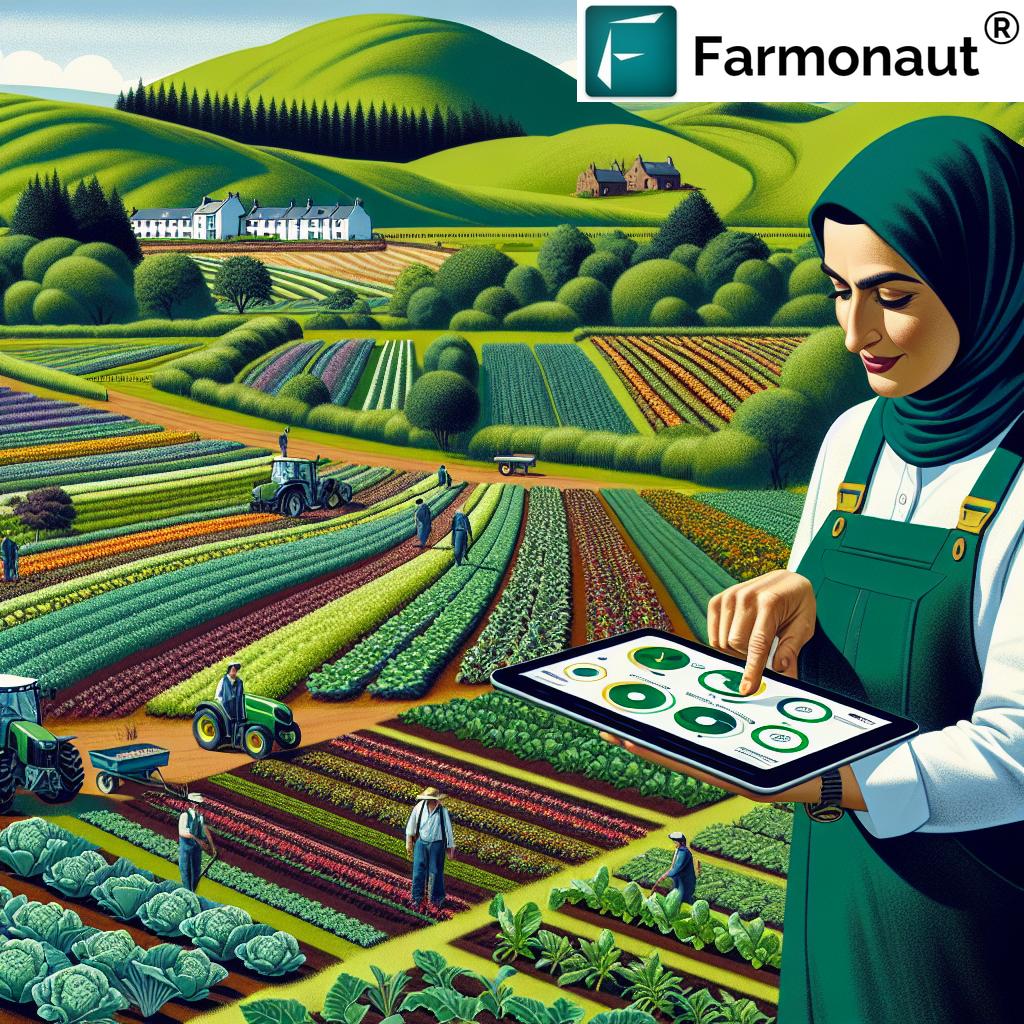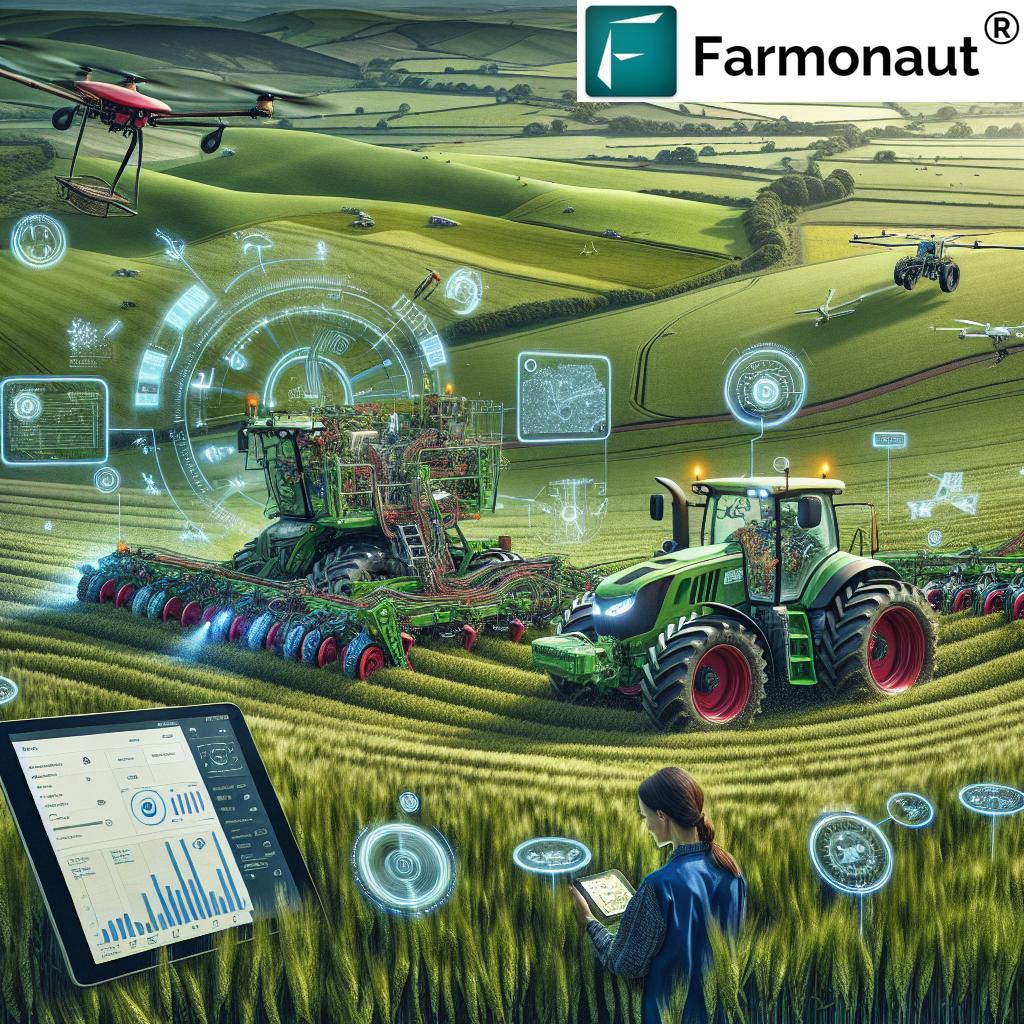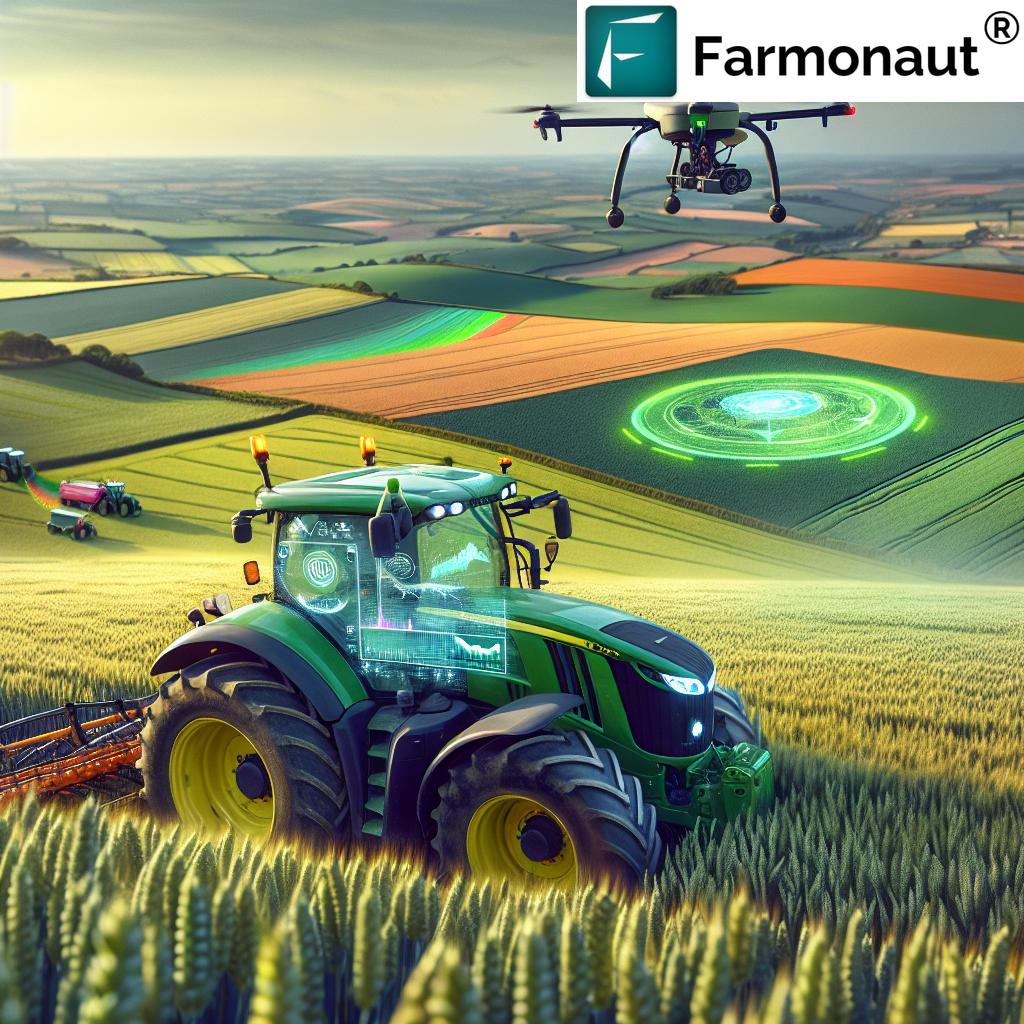Revolutionizing UK Agriculture: How Insect Farming Tackles Food Waste and Boosts Sustainable Protein Production
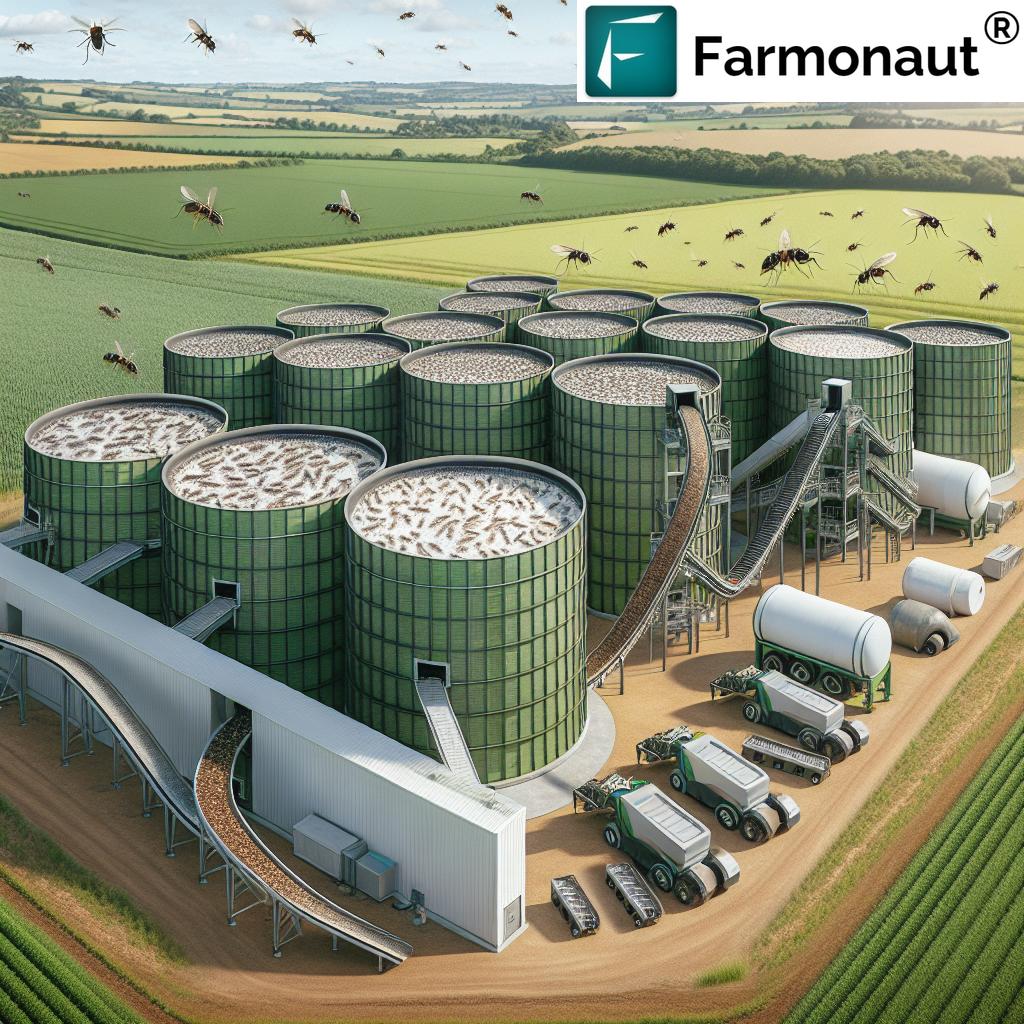
“Black Soldier Fly larvae can convert up to 60% of food waste into high-quality protein for animal feed.”
In the ever-evolving landscape of UK agriculture, we’re witnessing a remarkable transformation that’s reshaping the future of food production and waste management. As we delve into the world of sustainable agriculture solutions, we uncover an innovative approach that’s making waves across the industry: insect farming for protein production. This groundbreaking method is not only tackling the pressing issue of food waste management in the UK but also paving the way for a more sustainable and efficient agricultural sector.
At the heart of this revolution lies a tiny yet mighty creature: the Black Soldier Fly. These industrious insects are proving to be game-changers in our quest for circular economy in agriculture, offering a sustainable alternative to traditional livestock farming and import-dependent feed production. As we explore the potential of this cutting-edge technology, we’ll uncover how it’s reshaping the future of farming and contributing to a more sustainable food system.
The Challenge: Food Waste and Unsustainable Protein Production
Before we dive into the innovative solutions, let’s understand the scale of the problem we’re facing:
- The UK generates approximately 9.5 million tonnes of food waste annually
- Traditional livestock farming contributes significantly to greenhouse gas emissions
- The UK heavily relies on imported soya for animal feed, raising sustainability concerns
These challenges call for innovative approaches to waste reduction and sustainable protein production. This is where insect farming, particularly Black Soldier Fly farming, comes into play.
Insect Farming: A Game-Changer in Sustainable Agriculture
Insect farming, especially using Black Soldier Flies, is emerging as a revolutionary solution to address multiple challenges in the agricultural sector. Here’s why it’s gaining traction:
- Efficient conversion of food waste into valuable protein
- Significantly lower environmental impact compared to traditional livestock farming
- Potential to reduce reliance on imported feed ingredients
- Production of high-quality fertilizers as a by-product
As we explore this innovative approach, it’s crucial to understand how technology plays a vital role in modern agriculture. Platforms like Farmonaut offer advanced satellite-based farm management solutions that complement these sustainable practices. While Farmonaut doesn’t directly deal with insect farming, its technologies for crop health monitoring and resource management can be invaluable for farmers adopting these new methods.
The Black Soldier Fly: Nature’s Waste Conversion Specialist
At the center of this agricultural revolution is the Black Soldier Fly (Hermetia illucens). These remarkable insects possess unique characteristics that make them ideal for sustainable waste management and protein production:
- Rapid growth cycle (about 14 days from egg to pupa)
- Ability to consume a wide variety of organic waste
- High protein content (up to 42% of dry weight)
- Non-pest species that doesn’t transmit diseases
The larvae of Black Soldier Flies are voracious eaters, capable of consuming organic waste up to 200 times their body weight per day. This extraordinary ability makes them perfect for tackling food waste while simultaneously producing valuable protein.
The Process: From Waste to Valuable Resource
The insect farming process using Black Soldier Flies is a marvel of efficiency and circular economy principles. Here’s a step-by-step breakdown:
- Waste Collection: Food waste is collected from various sources, including supermarkets, restaurants, and food processing plants.
- Feeding: The collected waste is fed to Black Soldier Fly larvae in controlled environments.
- Growth: The larvae rapidly grow, consuming the waste and converting it into valuable biomass.
- Harvesting: After about two weeks, the larvae are harvested.
- Processing: The harvested larvae are processed into protein meal and oil.
- By-product Utilization: The remaining frass (insect excrement) is used as a nutrient-rich fertilizer.
This process not only addresses the issue of food waste but also produces high-quality protein for animal feed and valuable fertilizers for crop production, embodying the principles of a circular economy in agriculture.
Explore Farmonaut’s API for advanced agricultural insights
Environmental Benefits of Insect Farming
The environmental advantages of insect farming, particularly when compared to traditional livestock farming, are substantial:
- Reduced Land Use: Insect farms require significantly less land than traditional livestock farms.
- Lower Water Consumption: Insect farming uses a fraction of the water needed for conventional livestock farming.
- Decreased Greenhouse Gas Emissions: Insects produce fewer greenhouse gases compared to cattle or pigs.
- Efficient Feed Conversion: Insects convert feed to protein more efficiently than traditional livestock.
“Insect farming for protein production can reduce agricultural carbon footprint by up to 90% compared to traditional livestock.”
These environmental benefits align perfectly with the UK’s goals for sustainable agriculture and reducing the carbon footprint of food production.
Applications in UK Agriculture
The potential applications of insect farming in UK agriculture are vast and exciting:
- Aquaculture Feed: Insect protein is an excellent alternative to fishmeal in aquaculture, reducing pressure on wild fish stocks.
- Poultry and Pig Feed: As regulations evolve, insect protein could become a sustainable feed option for poultry and pigs.
- Pet Food: The pet food industry is increasingly interested in insect-based proteins as a sustainable ingredient.
- Organic Fertilizers: The frass produced by insects is a nutrient-rich fertilizer that can enhance soil health and crop growth.
Check out Farmonaut’s API Developer Docs for integration possibilities
Challenges and Opportunities
While insect farming presents tremendous potential, it’s not without its challenges:
- Regulatory Hurdles: Current regulations limit the use of insect protein in certain animal feeds.
- Scale-up Costs: Initial investment for large-scale insect farming facilities can be substantial.
- Public Perception: Overcoming cultural barriers to insect-based products may take time.
- Technology Integration: Optimizing production processes through automation and data analytics.
However, these challenges also present opportunities for innovation and growth in the agritech sector. As the industry evolves, we’re likely to see advancements in production techniques, regulatory frameworks, and consumer acceptance.
The Role of Agritech Incubators
Agritech incubators are playing a crucial role in fostering entrepreneurship and driving innovation in waste reduction techniques. These incubators provide:
- Access to funding and resources
- Mentorship from industry experts
- Networking opportunities with potential partners and investors
- Testing facilities for new technologies
By supporting startups and innovators in the insect farming space, these incubators are accelerating the development and adoption of sustainable agriculture solutions.
Impact on UK Agriculture and Food Security
The adoption of insect farming in the UK has far-reaching implications for agriculture and food security:
- Reduced Dependence on Imports: By producing protein locally, the UK can decrease its reliance on imported soya and fishmeal.
- Enhanced Circular Economy: Insect farming creates a closed-loop system, turning waste into valuable resources.
- Improved Soil Health: The use of insect-based fertilizers can enhance soil quality and crop yields.
- Diversified Protein Sources: Insect farming adds resilience to the UK’s protein production capabilities.
These factors contribute to a more sustainable and secure food system for the UK, aligning with national goals for food security and environmental stewardship.
The Future of Sustainable Animal Feed Alternatives
As we look to the future, the potential of insect farming extends beyond its current applications:
- Expanded Use in Livestock Feed: As regulations evolve, insect protein could become a staple in feeds for a wider range of livestock.
- Human Consumption: While not currently a focus in the UK, insects as a direct protein source for humans could gain traction.
- Bioplastics and Other Materials: Research is ongoing into using insect-derived materials for biodegradable plastics and other products.
- Pharmaceutical Applications: Certain insect-derived compounds show promise for medical uses.
The future of sustainable animal feed alternatives is bright, with insect farming at the forefront of this agricultural revolution.
Integrating Technology for Optimal Results
While insect farming is revolutionizing waste management and protein production, it’s important to note how other technological advancements in agriculture can complement these efforts. For instance, Farmonaut’s satellite-based crop health monitoring and AI-driven advisory systems can help farmers optimize their crop production, potentially reducing food waste at the source.
By combining innovative farming methods like insect farming with advanced agricultural technologies, we can create a more holistic approach to sustainable agriculture. This integration can lead to:
- More efficient use of agricultural land
- Reduced water usage through precise irrigation management
- Optimized fertilizer application, leveraging insect-derived organic fertilizers
- Better pest and disease management, reducing crop losses
Comparative Analysis: Traditional vs. Insect Farming
To fully appreciate the impact of insect farming, let’s compare it with traditional livestock farming:
| Metric | Traditional Livestock Farming | Insect Farming (Black Soldier Flies) | Potential Impact |
|---|---|---|---|
| Food Waste Reduction (tonnes/year) | Minimal | Up to 300,000 | Significant reduction in landfill waste |
| Protein Yield (kg/hectare) | 1,000 (cattle) | 150,000 | 150x more efficient land use |
| Water Usage (litres/kg protein) | 15,400 (cattle) | 20 | 770x reduction in water consumption |
| Land Use (m²/kg protein) | 45-70 (cattle) | 1-2 | 30-45x reduction in land use |
| CO2 Emissions (kg CO2e/kg protein) | 45 (cattle) | 1-2 | 90-95% reduction in emissions |
| Feed Conversion Ratio | 6:1 (cattle) | 1.5:1 | 4x more efficient feed conversion |
| Potential for Circular Economy (scale 1-10) | 3 | 9 | Significant improvement in resource cycling |
This comparison clearly demonstrates the revolutionary potential of insect farming in addressing key challenges in sustainable agriculture and food production.
Case Study: Successful Implementation in the UK
While we can’t mention specific companies, let’s consider a hypothetical case study of a successful insect farming implementation in the UK:
A medium-sized farm in rural England converted part of its operations to insect farming, focusing on Black Soldier Flies. Within the first year of operation, they achieved the following results:
- Processed 5,000 tonnes of food waste that would have otherwise gone to landfill
- Produced 1,000 tonnes of high-quality insect protein meal
- Generated 500 tonnes of organic fertilizer as a by-product
- Reduced their carbon footprint by 80% compared to their previous livestock operations
- Created 15 new jobs in the local community
This example illustrates the potential for insect farming to create positive economic and environmental impacts at a local level.
The Role of Policy and Regulation
For insect farming to reach its full potential in the UK, supportive policies and regulations are crucial. Key areas for consideration include:
- Expanding approved uses of insect protein in animal feeds
- Providing incentives for farms transitioning to insect farming
- Developing standards for insect-based products
- Funding research into optimizing insect farming techniques
As policymakers become more aware of the benefits of insect farming, we can expect to see more favorable regulations and support mechanisms in place.
Consumer Acceptance and Market Trends
While insect farming primarily focuses on producing feed for animals, consumer acceptance is still a crucial factor for the industry’s growth. Current trends show:
- Increasing awareness of the environmental impact of food choices
- Growing interest in alternative and sustainable protein sources
- Positive reception to insect-based pet foods
- Gradual acceptance of insects as a potential future food source for humans
As consumers become more environmentally conscious, the market for insect-based products is likely to expand, driving further innovation in the sector.
Conclusion: A Sustainable Future for UK Agriculture
As we’ve explored throughout this article, insect farming represents a revolutionary approach to tackling some of the most pressing challenges in UK agriculture. By addressing food waste management, sustainable protein production, and environmental concerns, this innovative method is paving the way for a more sustainable and efficient agricultural sector.
The potential of insect farming to create a circular economy in agriculture, reduce our carbon footprint, and enhance food security cannot be overstated. As technology continues to evolve and regulations adapt, we can expect to see this sector grow and contribute significantly to the UK’s agricultural landscape.
While challenges remain, the benefits of insect farming are clear. It offers a path to more sustainable animal feed alternatives, reduces our reliance on imports, and provides new opportunities for farmers and entrepreneurs alike. As we move forward, the integration of insect farming with other advanced agricultural technologies, such as those offered by companies like Farmonaut, will be crucial in creating a holistic approach to sustainable agriculture.
The future of UK agriculture is bright, and insect farming is set to play a pivotal role in shaping that future. As we continue to innovate and adapt, we’re not just revolutionizing agriculture – we’re building a more sustainable world for generations to come.
FAQs
- Q: What are the main benefits of insect farming for protein production?
A: Insect farming offers numerous benefits, including efficient food waste conversion, lower environmental impact compared to traditional livestock farming, reduced land and water usage, and the production of high-quality protein and organic fertilizers. - Q: How does insect farming contribute to a circular economy in agriculture?
A: Insect farming creates a closed-loop system by converting food waste into valuable protein and fertilizers, reducing waste and creating new resources for agriculture and aquaculture. - Q: What are the current challenges facing the insect farming industry in the UK?
A: Key challenges include regulatory hurdles, initial scale-up costs, public perception, and the need for technological integration to optimize production processes. - Q: How does insect farming compare to traditional livestock farming in terms of environmental impact?
A: Insect farming typically requires significantly less land and water, produces fewer greenhouse gas emissions, and has a more efficient feed conversion ratio compared to traditional livestock farming. - Q: What role do agritech incubators play in advancing insect farming?
A: Agritech incubators provide crucial support to startups and innovators in the insect farming space, offering funding, mentorship, networking opportunities, and testing facilities to accelerate the development and adoption of these technologies.
